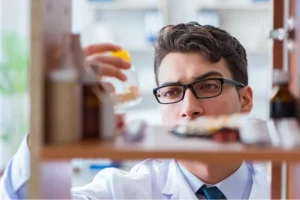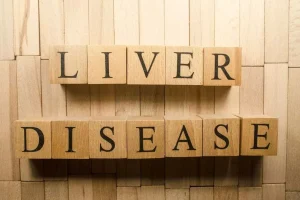
Lumina Recovery offers compassionate, comprehensive addiction treatment, including inpatient and outpatient care, and medication-assisted treatment (MAT). We are committed to empowering lives and creating change through personalized recovery plans that address the physical, emotional, and psychological aspects of drug and alcohol addiction. Just as you are growing and changing in your recovery journey, your loved ones are also evolving. Show support for their goals, dreams, and changes they wish to make in their lives.
Healthy Relationships in Recovery: Do’s and Don’ts

It’s not an easy undertaking to begin building healthy relationships in sobriety and your recovery journey, but it will be so rewarding when you do. Before you build a relationship after rehab, you have to commit to getting sober and undergoing addiction treatment. If you or a woman close to you is actively abusing substances, we can help. Here at New Directions for Women, we help women overcome debilitating substance use disorders.
Positive Reinforcement
Being open could even help create strong friendships that last a lifetime. Every step taken toward building healthy relationships brings us closer to living free from substance abuse. However, recovery offers a chance to begin anew and build healthier connections. These relationships provide crucial support throughout your healing journey. With all the concerns that need to be considered, is it wise to start a relationship while in recovery?
Balancing a Relationship and Personal Recovery Goals
While no individual’s life is completely stress-free, there is no reason to add a toxic friend, relative, or loved one to the normal sources of stress in life such as school or work. Stress is often the reason that people turn to drugs to feel relief or to “take the edge” off. Rather than entertaining a toxic relationship, it’s better to put distance between yourself and the person so they can change. However, if they can’t make a commitment to change, there is nothing wrong with ending the relationship. Effective communication is key to forming and maintaining healthy relationships. Practice active listening, express your thoughts and feelings honestly, and show genuine interest in the lives of others.
Why authentic and healthy relationships are essential to overcoming addiction.
All these emotions can create emotional distance in the relationship as a way to protect themselves from the chaos of addiction. This distance can strain trust and connection, which were once the foundation of the relationship. Over time, these costs can become overwhelming and cause a lot of financial stress. Family members may get involved in these financial issues as they try to deal with the consequences of their loved one’s addiction. Sometimes, the person with an addiction can’t contribute to the family’s finances, making things even harder. Together, we can forge new pathways to reduce loneliness and its burdens.

You can think and study all you want, but nothing happens until you take action. We have covered relationships with ourselves, our family, and spirituality. Now it is time to tackle pretty much all else that is left, and by that, I mean our relationships in society and with our community. However, the past cannot just be ignored; relationships in recovery the pain was genuine to them every day while the user just ‘checked out,’ leaving the family members holding the bag for a whole host of problems. They truly want to believe that it is all over but have genuine concerns about it. Nobody’s perfect, regardless of what you’ve heard or what popular media wants you to believe.
- Focusing on relationship recovery intentionally throughout addiction recovery can improve quality of life, which will bolster addiction recovery efforts.
- Polish your listening skills and body language to make people feel comfortable.
- It’s important to tell the people in your life that you need to stay away from situations with drugs or alcohol.
- People who are abusing drugs or alcohol are often unreliable, break promises, and neglect responsibilities.
- This journey often involves navigating relationships post-addiction, not just creating new connections but managing existing relationships in a healthier manner post-recovery.
- In this blog post, we delve into the reasons why connection in recovery matters so much and how you can strengthen your own connections on the path to sobriety.
Toxic Relationships With Others Can Poison Your Life and Lead to a Reoccurrence
During recovery, individuals learn the importance of setting and respecting boundaries. This newfound ability allows for healthier relationships where individuals can establish clear limits without enabling or being codependent. Setting healthy boundaries fosters mutual respect, understanding, and harmony within relationships. Active addiction often causes individuals to prioritize substance abuse over their relationships, leading to emotional disconnection. Sober living allows individuals to fully engage in emotional intimacy, strengthening their bond with loved ones.
What may have started in the beginning as casual use escalated over time. Our drug or alcohol or use became so prominent that it became the thing we organized everything in our lives around. That includes destroying relationships and actually giving up fun things that we used to do. Understand that maintaining relationships is a process that requires patience and forgiveness, both for yourself and for others. There may be setbacks or misunderstandings along the way, but with patience and forgiveness, you can work through these challenges.
- Access useful information to help you navigate your recovery or to support a loved one through theirs.
- “Every time I open a pack of cigarettes I have 20 friends.” This sentiment, that a person’s addiction offers a (false) semblance of companionship, is a common one.
- Even if romantic relationships aren’t the main focus, it’s important to make sure that healthy relationships are a primary goal of addiction recovery.
- The 12-step program has been widely recognized as a valuable tool for repairing and rebuilding relationships in the context of recovery.
- You can’t decide to change your outlook drastically today and expect extreme results in the morning.
How Addiction Impacts Relationships

In active addiction, you are unkind to yourself, you abuse your body, and you do things you are not proud of. Choosing wisely when it comes to the company you keep is essential to enjoying a sober lifestyle. Knowing the qualities https://ecosoberhouse.com/ of a healthy relationship is the first step to pursuing and developing them in your life. If you don’t know what to look for, you won’t know it when you see it. Let’s list a few of the many attributes of a healthy relationship.

Healthy Relationships
Express gratitude and appreciation for the support and love your friends and family have shown. Small gestures of appreciation can go a long way in reinforcing the bond you share. Acknowledging the role they play in your recovery journey can make them feel valued and appreciated. Recovery is an excellent time to explore new hobbies or revisit old interests that you might have neglected. Shared activities create natural opportunities for building friendships and are great coping skills.

